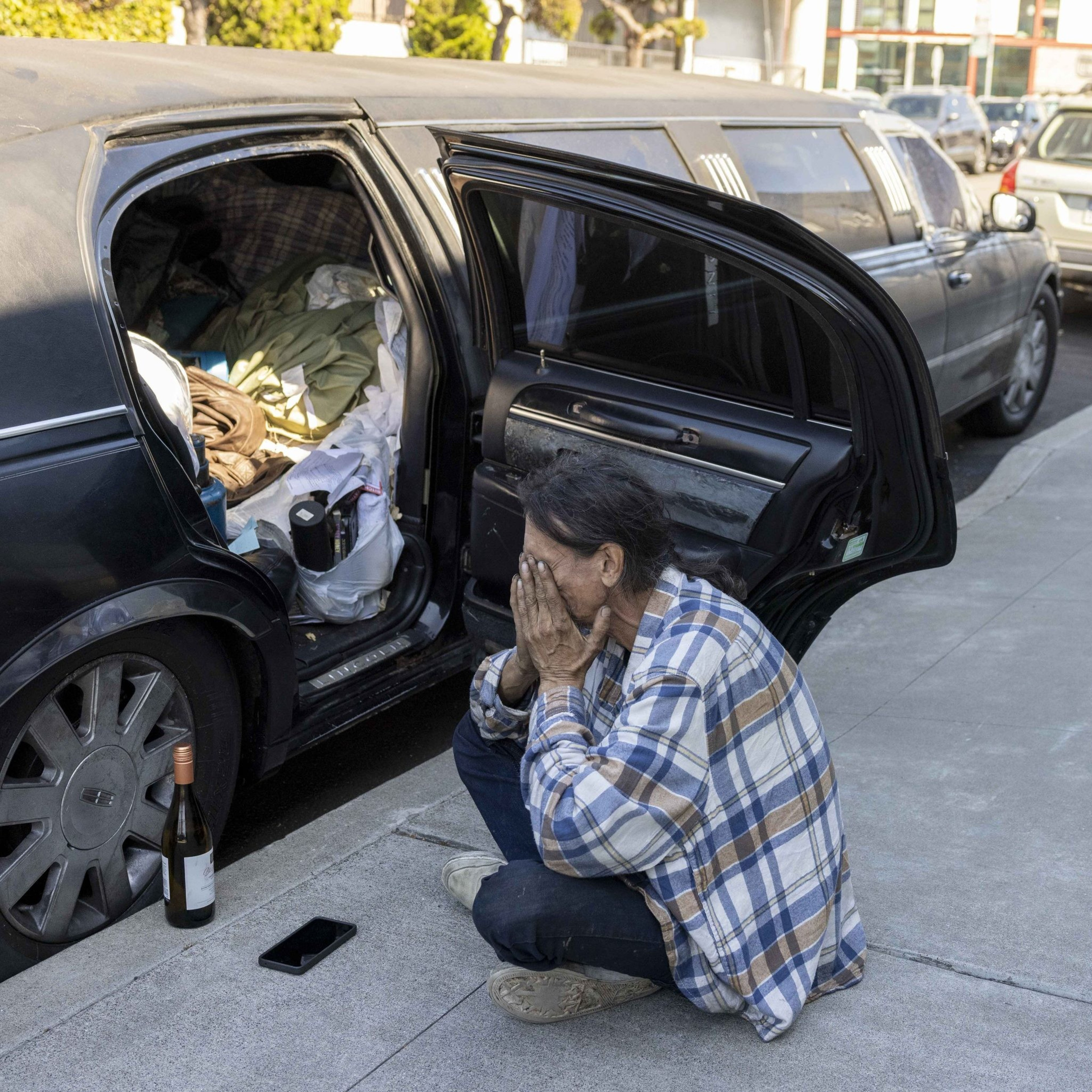Poet Gary Parkinson’s limo is the perfect place to host a party. With its leather seats, two televisions, wet bar, and ceiling mirror, the luxury car is uniquely outfitted for a good time. And Parkinson should know: This, he says, is his 15th limousine.
But ever since he bought the elongated black Lincoln three months ago, life has been anything but a party.
After he was threatened with eviction from his apartment last month, he moved into the limo and planned to turn it into a mobile home and office, he said. But eight batteries later, the car won’t start. The license plate appears to be fake. And any day now, it could be towed — along with nearly everything he owns.
“It’s doing everything except running,” Parkinson said. “It’s been a nightmare.”


He’s no stranger to the dilemma. He claims the city has towed more than 200 of his vehicles over two decades. But still, this situation feels especially dire, he said.
Starting Nov. 1, the city plans to ban large vehicles from parking overnight on some streets, at the discretion of the city’s transportation director. Mayor London Breed and other proponents of the ban argue that many homeless people are unwilling to enter shelter unless their cars might be towed.
But Parkinson scoffed at their reasoning for the ban. The city counted 1,444 people living in vehicles earlier this year; more than 500 homeless families, who often live in vehicles, were on the waitlist for shelter as of Oct. 1.
“We can barely survive as it is,” he said. “Then they just take our possessions.”
The San Francisco Municipal Transportation Agency said it has towed 13 of Parkinson’s vehicles — including one limousine, three motorhomes, and a ford bus — since 2017. It said Parkinson has also bought 16 vehicles from city auctions. But the agency wouldn’t provide the number of tows from before 2017.
“It’s a lot, an incredible amount,” Parkinson assured this reporter. “A tremendous number.”
The transportation agency didn’t clarify whether the new parking ban will affect people living in limos.
Limo in limbo
Parkinson says he likes living in limos because they’re less likely to attract police attention than a car or RV. He has big plans to turn his Lincoln into a double-decker “pop-top” office to travel the state and advocate for people on welfare, with the goal of solving the problem of homelessness.
“There are those of us who still dream,” he said. “But we’re all cooped up into being drug addicts and thieves.”
Parkinson also owns an RV, parked in the Bayview neighborhood, where he lets his friend Carl Erickson sleep. He feared the city would tow the RV during a scheduled encampment clearing Tuesday. It didn’t happen.


Parkinson relies on strangers to help push his limo down the block to avoid street-sweeping tickets. He makes daily trips to and from his RV, transporting belongings, and attempting to fix the limo’s engine. He assumes the city will eventually tow at least one of his two vehicles. But he doesn’t have a plan for what happens next.
“I’m an optimist, so I try to keep my mind on the hopefulness of the future,” he said. “But I’ve found in reality, it continues to be a fleeting hope.”
Between dealing with his vehicles, he writes poetry, mostly about his life on the streets:
“I’m making a change, starting today, bearing every pain for all to see. Like an open book, admitting to my shame, giving back what I took for which deserves blame. All I can do is try to be the seeking person who wants to be a better me.”

